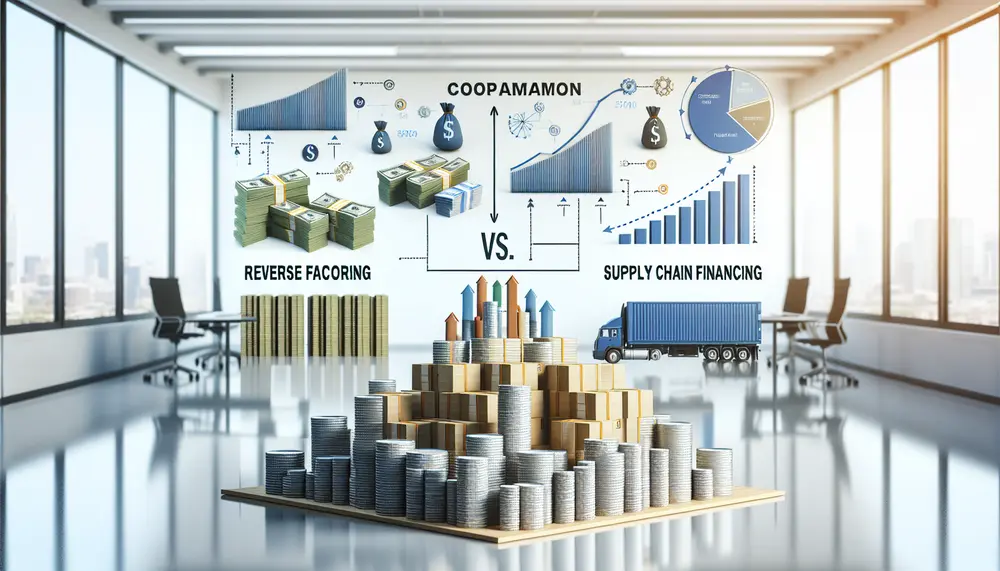Invoice payment
Invoice payment
Understanding Invoice Payment
When a business sells goods or offers services, they generate an invoice to request payment from their customer. An invoice details the transaction and includes information such as the amount due, services or products provided, payment terms, and a due date. Invoice payment is the process where the customer transfers the amount specified in the invoice to the business, fulfilling their financial obligation.
The Role of Invoice Payment in Financial Factoring
In the context of financial factoring, invoice payment takes on a vital role. Financial factoring is a financing method where a business sells its accounts receivable (invoices) to a third party, known as a factor, at a discount. This allows the business to receive immediate cash instead of waiting for the invoice payment terms to be met, which could take 30, 60, or even 90 days.
How Invoice Payment Works in Factoring
The factoring process begins with the business owner selling their invoices to the factor. The factor then advances a major portion of the invoice value to the business upfront. Later, when the customer makes the invoice payment, the money goes directly to the factor. Once the factor receives the full payment, they will remit the remaining balance to the business, minus a factoring fee for the service provided.
Benefits of Invoice Payment Factoring
Businesses often turn to factoring for several reasons: it improves their cash flow, it eliminates payment chasing, and it provides a quicker way to access funds. With factoring, invoice payment becomes smoother and less uncertain as the responsibility for collecting the debt shifts from the business to the factor. This allows business owners to focus more on running their operation and less on financial management.
Conclusion
Understanding the concept of invoice payment is essential when exploring the financial option of factoring. By ensuring smooth invoice payments through a factor, businesses can manage their cash flow more effectively, enabling them to invest in growth and stabilize their finances in a predictable manner.
Blog Posts with the term: Invoice payment

Factoring law involves the sale of accounts receivable by a business to a factor for immediate cash, with legal terms like assignment and advance rate being key components. It requires careful consideration of jurisdictional laws, compliance with regulations such as...

Factoring is a financial strategy where businesses sell their invoices to a third party for immediate cash, improving liquidity without incurring new debt. It requires understanding terms like advance rates and fees, choosing the right factoring company with industry expertise,...

Factoring involves selling accounts receivable to a third party at a discount, providing immediate cash flow but incurring costs like service fees and interest rates. Understanding these costs, influenced by factors such as invoice volume and customer creditworthiness, is crucial...

Factoring is a financial transaction where businesses sell their invoices to a factor for immediate cash, without incurring debt. It involves key players—the business selling the invoice, the factoring company (factor), and the debtor—and comes in two forms: recourse and...

The article compares reverse factoring and supply chain financing, highlighting their differences in initiation, process, flexibility, cost structure, and risk management. It explains that while both methods aim to improve cash flow and strengthen financial relationships within the supply chain,...

Factoring is a financial strategy where businesses sell their invoices to a third party at a discount for immediate cash, with the factor assuming the risk of collecting payments. A factoring flow chart visually outlines each step in this process,...

Factoring fees are costs businesses pay to get immediate cash flow through invoice factoring, influenced by factors like invoice volume and client creditworthiness. The impact of these fees on a business's finances is significant, affecting net income and requiring careful...

Factoring involves selling accounts receivable to a third party for immediate cash flow, while Confirming (reverse factoring) is when a financial intermediary pays supplier invoices on behalf of the business, extending payment terms. Both services aid in managing different aspects...

Factoring is a financial transaction where businesses sell their invoices to a factor for immediate cash, improving cash flow and reducing payment wait times. The service includes advancing 70% to 90% of the invoice value upfront, collecting debts from customers,...

Factoring is a financial transaction where businesses sell their accounts receivable to a third party at a discount for immediate cash, improving their cash flow and working capital. It's an alternative funding method that doesn't increase debt, often used by...

Factoring is a financial transaction where businesses sell their accounts receivable to a third party at a discount for immediate cash, which helps manage cash flow and credit risk. It involves two main types: recourse and non-recourse factoring, with the...

Accounts receivable factoring alters financial reporting by showing increased cash flow and reduced receivables, with associated fees affecting net income. Understanding these changes is crucial for stakeholders to assess a company's liquidity and financial strategy accurately....

Factoring and discounting are financial services that help businesses improve cash flow by providing funds based on outstanding invoices, but they differ in mechanics, risks, and benefits. Factoring involves selling invoices to a third party who takes over collection, while...

Factoring net debt is a financial strategy where businesses sell their invoices to a factoring company for immediate cash, improving liquidity and managing cash flow. This method incurs fees and interest rates that must be weighed against the benefits of...
